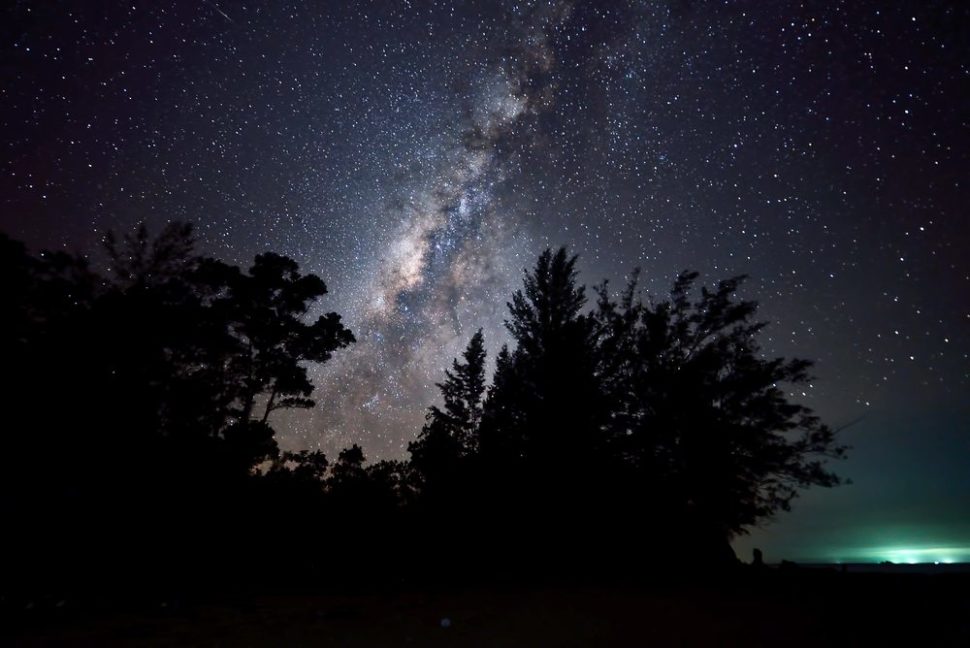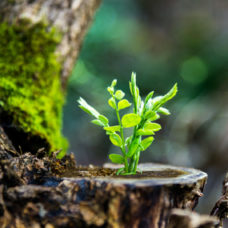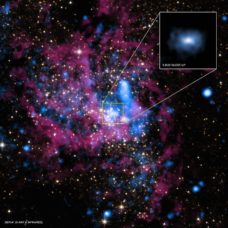The findings of a new study suggest that cosmic dust could transport the elementary building blocks of life from Earth to other worlds.
Life on Earth has evolved over billions of years and many of its iterations have not been similar to what we study today.
But, the question of how life began, or from where the first living organisms came to Earth, has long fascinated scientists.
The latest theory suggests that the seeds of life were brought to our planet from outer space–but we’re not talking about an asteroid impact.
Space dust could transport life from Earth to other worlds.Click To TweetAlien Origins of Terrestrial Life
The origin of life is a thorny problem because it’s a question that hits many scientific, religious, and philosophical nerves. We’re talking about microbes here, but intelligent life is a whole other issue.
To define the origins of life, we must go back billions of years and try to pick up response elements scattered in the rock formations that provide snapshots of Earth’s geological and biological history.
For example, stromatolites are sheet-like sedimentary rocks that have existed for more than 3.5 billion years.
Stromatolites are formed by successive layers of single-celled bacteria, called cyanobacteria, which was the only known form of life for the first two billion years.
But we can’t stop here because other questions arise: how did these bacteria come to life? And where the building blocks and life conditions come from?
The classical scientific hypothesis holds that all the necessary elements for life were already on the planet. Traces of such beliefs are found in writings from antiquity to the middle of the 19th century.
The “Cozmozoa theory”, developed by German physician Hermann Richter in 1865, conversely says particles containing germs of living microorganisms would have been brought to Earth aboard meteorites.
At the beginning of the 20th century, Swedish chemist Svante Arrhenius elaborated on Richter’s ideas to formulate what’s known as “panspermia”.
How Cosmic Dust sow Life Seeds
Researchers from the School of Physics and Astronomy at the University of Edinburgh (in Scotland, UK) propose that life on Earth may have actually come from other places in the universe, via fast-moving streams of cosmic dust that carry microscopic organisms.
According to the study, published in the journal Astrobiology and available on arXiv.org, around 220,000 pounds of dust rain down on Earth every day at speeds up to 44 miles per second.
The streams of dust hit the upper layers of Earth’s atmosphere at about 93 miles and higher. Here small organic particles are trapped despite the pull of Earth’s gravity. Once free, these particles are picked up and carried away by dust flows to other places in The Solar System.
“The proposition that space dust collisions could propel organisms over enormous distances between planets raises some exciting prospects of how life and the atmospheres of planets originated,” said Arjun Berera of the University of Edinburgh. “The streaming of fast space dust is found throughout planetary systems and could be a common factor in proliferating life.”
Earth’s tardigrades, or microscopic animals, are present in the upper atmosphere and can survive in space. They may even hitch a ride with passing space dust to another planet.
Even if this doesn’t prove that life on Earth originated this way, it implies that life could jump from planet to planet and that it could be happening in many corners across the universe.



















This is intellectually insulting. “cosmic dust sows life seeds.” This is a joke, right?. Nothing written details how life started, panspermia only offsets the details. The survival of tardigrades or bacteria or microbes in the upper atmosphere or even outer space says nothing about how they came into being. All necessary elements for life have always been on the planet after the late heavy bombardment, and the late veneer. That says nothing. Chemical evolution is a myth, there are no naturalistic processes capable of the complex assembly of abiotic compounds and elements, so all naturalistic hypotheses abjectly fail to detail the origin of life. Any proposition of Oparin-Haldane primordial soup viability is rehash of disproven scientific theory, not valid. If this is intended as a history of failed theories, fine, but it does not delineate that conclusion, implying ignorance, duplicity or faith-based adherence to naturalistic ideologies.
We apologize for insulting your intellect. We put this firmly in the “Eye on Sci-Fi” category because while there are elements of biological study in this article, the assertion that life came to Earth in the form of space dust is impossible to prove. Of course, as you point out, where that life began would still have to be established. Instead, we focused on the Berera quote: “The streaming of fast space dust is found throughout planetary systems and could be a common factor in proliferating life.” Our hope was to pose a skin-deep consideration of space dust as a possible origination of life on Earth.